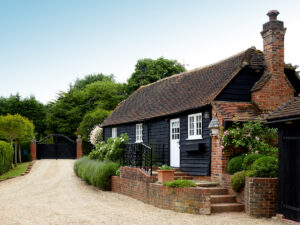What is a Renovation?
A great example of a farmhouse renovation is my Catalan Farmhouse project. This is a sympathetic renovation that showcases the original features of the building whilst also reflecting contemporary style. On top of this, don’t forget that the building should be easy to live in with convenient features and a natural flow. No two renovations are the same. In fact they can sometimes be confused with that similar concept, a restoration.
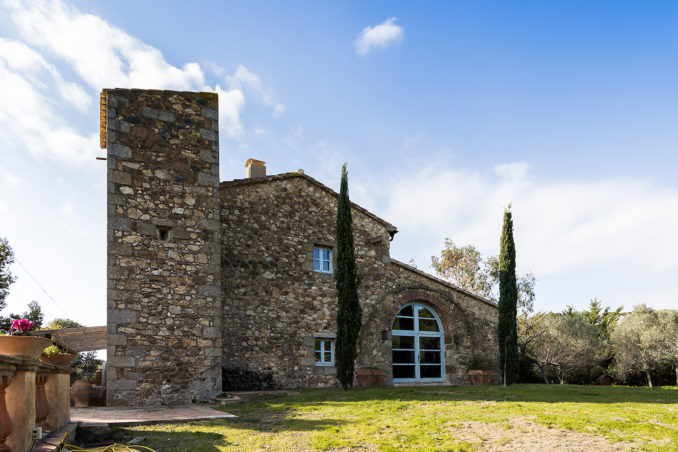
Renovation or Restoration?
It’s important to differentiate between these two to avoid confusion. A restoration seeks to bring a building in line with how it existed at its conception, a renovation balances original features with modern living.
Both approaches have their merit, a restoration is valid when the building is close to what it originally was, when a building has been added to 5 or 6 times, and huge chunks of the house are new anyway – then you can do what you want! Like in the Grade 2 listed building in Surrey. Of course, there are times when renovations are necessary, such as when a building is in danger of collapse or disrepair. However, I believe that we should always strive to restore buildings to their original state whenever possible.
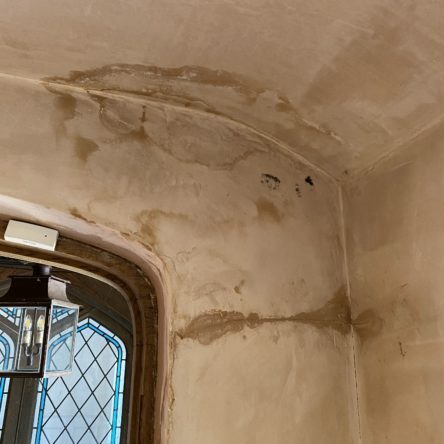
The challenges of a farmhouse renovation
It’s not all fun and games, though. When you get down to it, renovating a farmhouse can be fraught with difficulty. For a start, there is no standard farmhouse – these buildings can vary from being a 16th Century barn to an 18th Century cottage. There are structural and heritage issues, and legislation which must take priority before you think about layout. A chunk of your budget will likely need to go into utilities like electrics and plumbing. All of this before you get to experiment with the fun bit – the interior design scheme! Interior design professionals can manage all of these elements to ensure that a visual concept remains within building regulations and practical logistics.
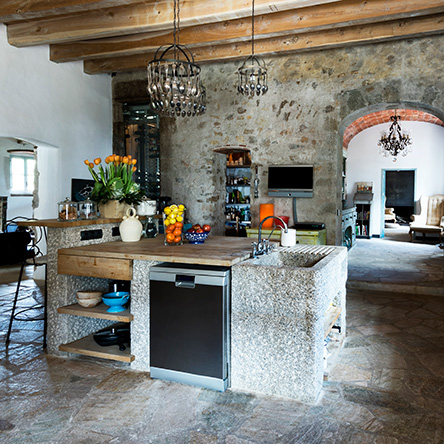
Choosing a renovation style
So how do you identify the right renovation style for your building? It’s important to respect the history and intent of a building. This may involve restoring some of the original features – flooring, brickwork, timbers, fireplaces and windows. On top of this, your style must carry with it a seamlessness that intertwines the old and new.
Authentic
An authentic historic farmhouse style should celebrate original features. This can be hard work but is worth it. You can see the results of similar restored features in my Grade II property renovation.
Modern Contrast
Make the most of modernist elements like lighting, art and sculpture to contrast layers of original materials and features. Showcasing contrast like this can create the most striking homes, as in my Catalan farmhouse. With furniture, fixtures and fittings (FF&E) which are not ‘fixed’ to the building it’s an opportunity to adopt a more modern style, because once your time is over and the next ‘owner’ of a historic building comes in replacing these items won’t affect the true character of the building. This can allow you to add your own personal touch to the space without compromising its historical significance.
Contemporary Transformation
Go the whole hog and create a contemporary space within a period farmhouse project. These concepts can easily become jarring, so take care if you choose this path. Carefully articulated, though, they can really work, so it’s worth seeking experienced advice.
Sustainability
Farmhouse renovation projects are an ideal way to include sustainability in design. With the scope to recycle, repurpose and reimagine, renovating a farmhouse is full of possibility! While you can renovate the building to appear authentic, you can also include eco-friendly elements where they aren’t visible so that they don’t ruin the look of the building, such as sustainable heating and green roofing. Just make sure that you’re sticking to any conservation restrictions.
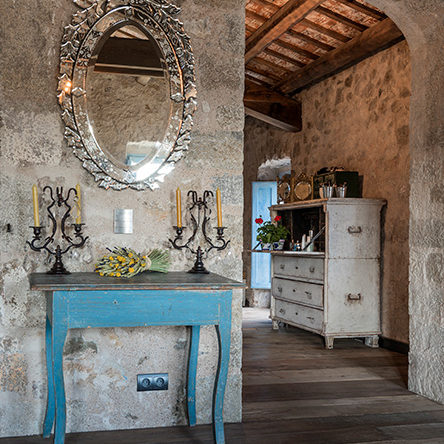
Whether you have your eye on renovating a farmhouse in the Surrey Hills or the Devon coast, take the time to really plan how your renovation will be realised. These buildings are so incredibly special, and offer the opportunity to create a living environment that is truly unique. To balance experienced advice with your own thoughts and ideas, just get in touch.
